- Gardening Tips |
- | What's NEW! |
- | Contact Us |
- | Sitemap
Garden Rose Tip
Which garden rose tip should be at the top of the list?
From amongst the hundreds of rose gardening tips, here are the top four tips, or probably more accurately, rules, for growing great roses.
At face value, they look pretty obvious but if you consider the reasoning behind them, it becomes quite clear why they are so important.
1. Have good soil
Roses will grow beautifully if planted in the right soil. They need good drainage, so be sure to add peat moss and compost.
Soil for rose gardening also requires a pH level of between 6.5 and 6.8, which means that the soil should be slightly acidic. If your soil has too much acid, add lime; if it is not acidic enough, add some sulphur.
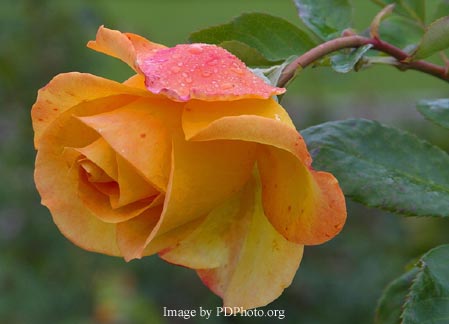
2. Water correctly
If your roses don't get enough water, they'll die - obviously. On the other hand, watering them too often will rob them of the ability to develop a deep root system.
Proper rose gardening requires deep watering a few times a week during the growing season. A fifteen minute watering two to three times a week during the growing season should be just right, depending upon your conditions.
Don't water in the evening, because this can cause powdery mildew to form on your rose plants.
3. Give them sun
Roses need around six hours of sun each day, to be exact. They will do best if they are protected from the hottest afternoon sun.
If you have a spot that gets sun all morning, but has some shade in the afternoon, that's the perfect spot for your rose garden.
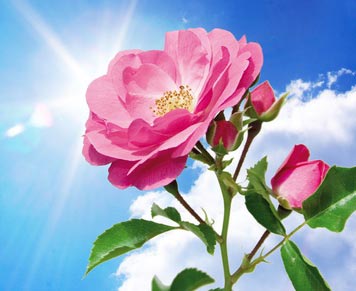
Garden Rose Tip Continued
4. Give them air
This is probably the most common mistake made by those who attempt rose gardening and then give up. It is critical that your rose bushes are spaced far enough apart to allow air to circulate between them. Check the spacing requirements of each bush when you purchase.
Roses are prone to a few diseases. Your rose gardening effort will prove more successful if you are aware of the common rose diseases and can prevent or treat them.
The most common rose diseases are powdery mildew, rust, black spot. It's critical to check rose plants for disease before you buy.
If you follow watering and spacing instructions, you should have little trouble with these diseases.
If, however, you do see symptoms of one of these diseases, prune the infected area; don't compost the clippings. If this doesn't solve the problem, a fungicide may be required.
Not fond of pesticides? Explore our organic rose gardening tips.
The above are our top garden rose tip or rules. Growing roses really isn't as difficult as most people think. And, rest assured; no other plant adds quite the beauty to your landscape that roses bring.
To Top of this Garden Rose Tip page
Return to Gardening Tips Home Page
Gardening Updates
Note: We'd love you to send us your favorite garden pics to feature on our new pages!
Contact Us and we'll send you an email address that can accommodate your photographs.
Related
Content:
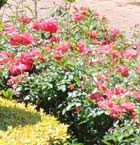 Rose Gardening Tips
Rose Gardening Tips
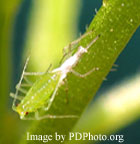 Organic Rose Gardening
Organic Rose Gardening
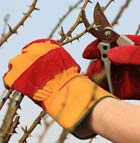 Seasonal Rose Gardening Advice
Seasonal Rose Gardening Advice
 Daily Gardening
Daily Gardening
Rose Tip
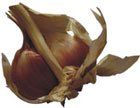 Favorite
Favorite
Rose Gardening Tip
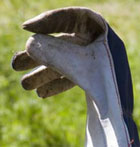 Rose Gardening Gloves
Rose Gardening Gloves